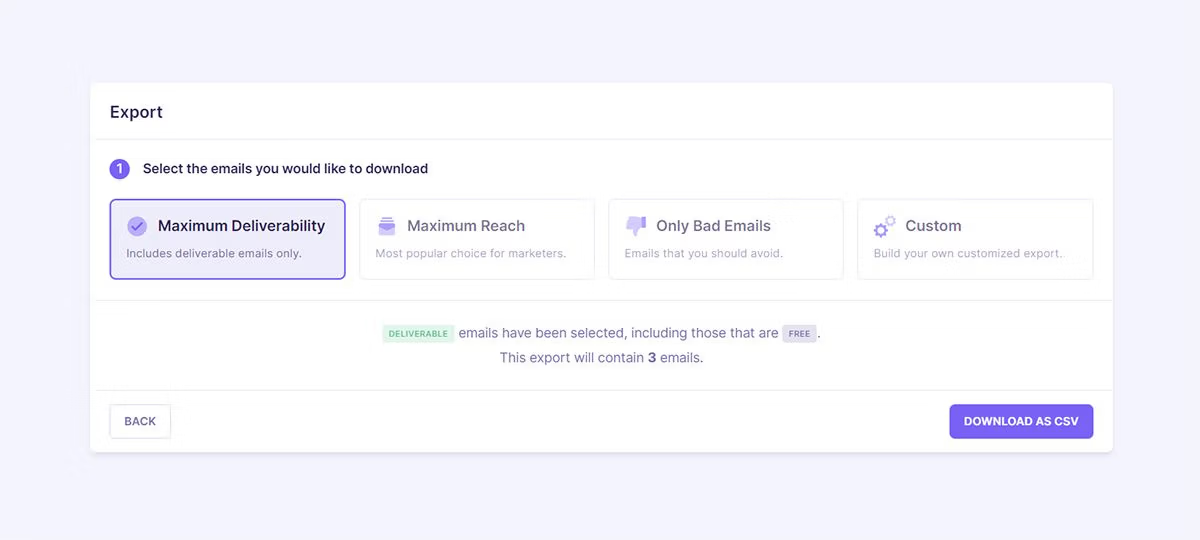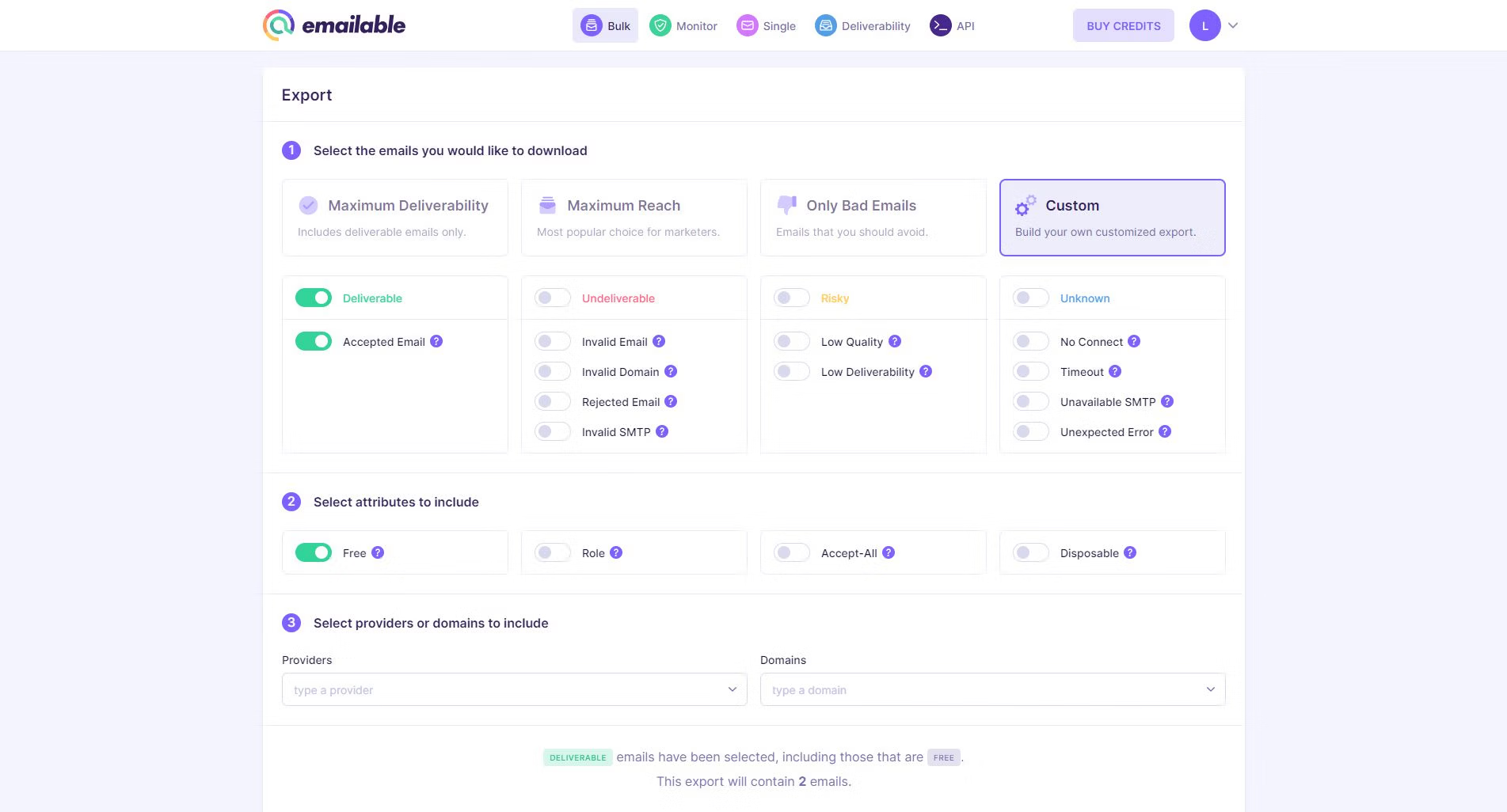Increase the Value of Your Email List by Enriching Data and Keeping It Clean
Updated February 9, 2024
2 min read

The average email list decays 2% every month. That means if you're not cleaning and verifying your contacts on a daily basis, your data is losing value.
You can measure email list health by comparing your campaign performance with industry benchmarks. Although this gives you a rough idea of where you are, it doesn’t tell you where the bigger problem is or how to solve it.
This is where a service like Emailable comes in. Let’s break down what an email quality score means, and how that impacts your list health.
Email Quality Score
Each email verified through Emailable receives a quality score from 0 to 100.
- 0 = Undeliverable
- 1-79 = Risky
- 80-100 = Deliverable
Undeliverable emails likely have an invalid email, invalid domain, invalid SMTP, or have been rejected by the mail server when conducting the verification test.
Risky emails land in the middle. Although you may be able to reach these contacts, deliverability cannot be guaranteed. These types of emails include Attributes such as Accept-all addresses, Disposable emails, and Role emails such as support@ or admin@.
Deliverable emails are the most valuable, however, that doesn’t necessarily mean you should consider all of these healthy emails. If you’re a B2B business for example and prefer professional emails only - you can filter out free emails such as Outlook and Hotmail.
How to export a clean email list
After verifying a list with Emailable, you’ll be presented with several options in your Export settings.
- Maximum Deliverability
- Maximum Reach
- Only Bad Emails
- Custom
 Maximum Deliverability includes any email that is Deliverable including both free and professional contacts.
Maximum Deliverability includes any email that is Deliverable including both free and professional contacts.Maximum Reach includes all emails minus undeliverable and duplicate contacts.
Only Bad Emails is popular for those who want to create a specific exclude list. Outside of filtering these users from your database, it’s also great for creating a negative ad list. This will help reduce your ad spend by not targeting these accounts again.
Custom is where you can define what your dream healthy email list looks like.
 Define what healthy means to you
Define what healthy means to you
Each business has a different way of defining what a healthy email list looks like. Once you’ve defined what yours is, simply check off the corresponding settings in the export section.
You can even filter exports down to specific domains or email providers.
Here are some examples of what specific groups may do:
| Enterprise SaaS | General B2C | eCommerce | Exclusive Club | |
|---|---|---|---|---|
| Deliverable | ✅ | ✅ | ✅ | ✅ |
| Undeliverable | ❌ | ❌ | ❌ | ❌ |
| Risky - Low Quality | ❌ | ✅ | ✅ | ❌ |
| Risky - Low Deliverability | ✅ | ✅ | ✅ | ❌ |
| Free | ❌ | ✅ | ✅ | ❌ |
| Role | ✅ | ✅ | ✅ | ❌ |
| Accept-All | ❌ | ❌ | ✅ | ❌ |
| Disposable | ❌ | ❌ | ❌ | ❌ |
| Filter by Domain | ✅ | ❌ | ❌ | ✅ |
What are good benchmarks?
In terms of deliverability, you want your bulk campaigns to be above 97% at any given time.
- Free Emails (Gmail, Outlook, Yahoo etc) - Closer to 97%
- Professional Emails - 99% and over
When it comes to bounces, this should be under 1%.
If at any given time you see a dip below 97% deliverability and above 1% in bounces, it’s time to clean your list.
Happy List Cleaning!